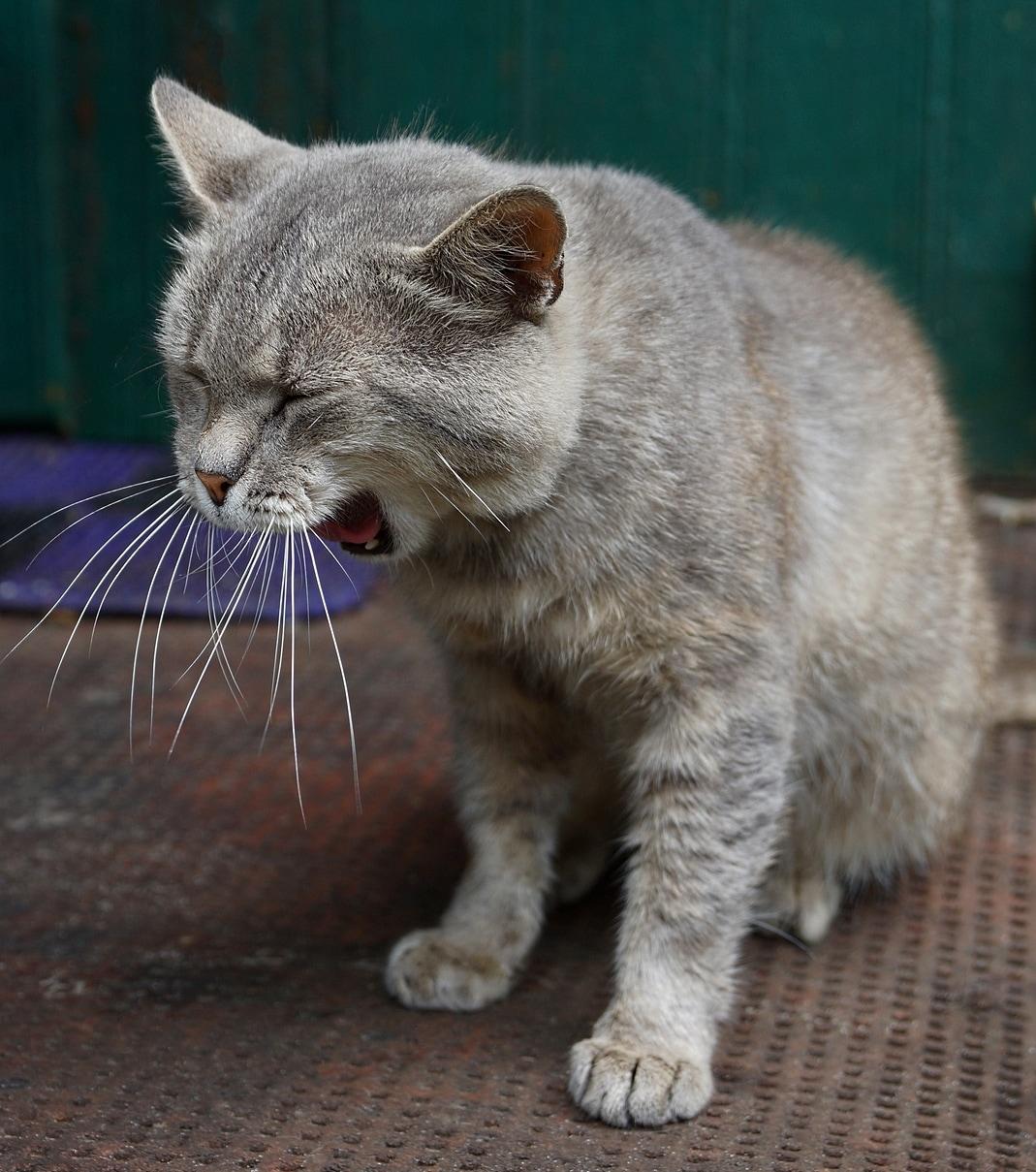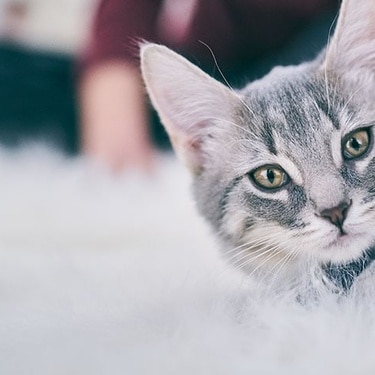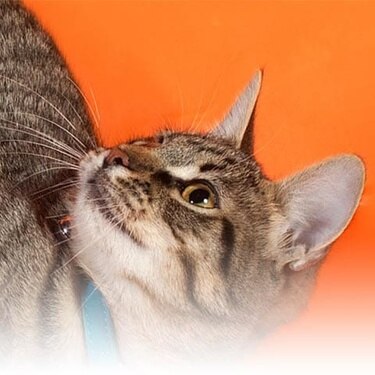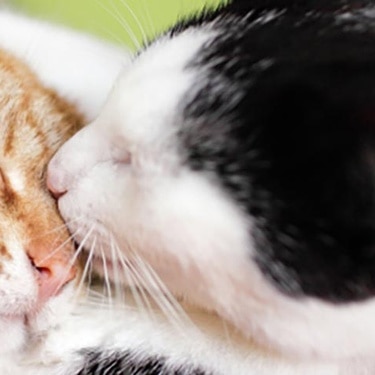
-
Find the right food for your petTake this quiz to see which food may be the best for your furry friend.Find the right food for your petTake this quiz to see which food may be the best for your furry friend.Health CategoryFeatured products
 Adult 6+ Large Breed Chicken Meal, Barley & Rice Recipe Dog Food
Adult 6+ Large Breed Chicken Meal, Barley & Rice Recipe Dog FoodSupports energy level, joint health, and beautiful coat in large breed mature dogs
Shop Now Puppy Sensitive Stomach & Skin Salmon & Vegetable Stew
Puppy Sensitive Stomach & Skin Salmon & Vegetable StewGentle on stomachs while nourishing skin & supporting development in growing puppies
Shop Now Adult Perfect Weight & Joint Support Chicken & Brown Rice Recipe Dog Food
Adult Perfect Weight & Joint Support Chicken & Brown Rice Recipe Dog FoodThis weight management and mobility support dog food was created with Hill’s unique understanding of the biology of overweight dogs.
Shop Now -
DogCat
- Cat Tips & Articles
-
Health Category
- Weight
- Skin & Food Sensitivities
- Urinary
- Digestive
- Kidney
- Dental
- Serious Illness
-
Life Stage
- Kitten Nutrition
- Adult Nutrition
Featured articles Water
WaterWater is the most important nutrient of all and essential for life. Animals can lose almost all their fat and half their protein and still survive, but if they lose 15% of their water, it will mean death.
Read More The Right Diet For Your Pet
The Right Diet For Your PetLearn what to look for in healthy pet food & nutrition, including ingredients, quality of the manufacturer, your pet's age, and any special needs they have.
Read More Pet Food Storage Tips
Pet Food Storage TipsWhere you store your cat and dog food can make a big difference in the quality and freshness once it is opened. Here are some common questions and recommendations for optimal storage for all of Hill’s dry and canned cat and dog food.
Read More -


One of the more common complaints vets hear from cat parents is that their cat has a sensitive stomach and vomits — maybe once a week, maybe twice a week, but always on the carpet (or somewhere else that's hard to wash). Even though chronic and intermittent vomiting can happen regularly, it is never normal, even if there is plant material or a hairball in the puddle on the floor.
There are two other common reasons your cat may experience a sensitive stomach and vomiting: food intolerance and food allergies.

Food Intolerance
There are many things inside and outside the cat gastrointestinal system that can cause a cat's sensitive stomach, including food intolerance and food allergies. Though they sound similar, these two issues are not the same thing.
Food intolerance can occur in cats of all ages, and it can be caused by food poisoning from spoiled food your cat mistakenly ate or a sensitivity to a certain ingredient. A sensitive stomach from food intolerance can also happen when a cat lacks an enzyme needed to fully digest a certain food, has irritable bowel syndrome or is stressed.
Many things can cause stress in a cat, including boarding, moving, adding a new pet to the family, dental disease or pain from arthritis. If you notice that your cat is vomiting or has diarrhea and you suspect she may have a sensitive stomach, don't change her food just yet. There may be another medical reason for her upsets. If her vomiting or diarrhea is severe or doesn't clear up within 24 hours, it is time to get your veterinarian involved.
Easily Digestible Foods
Some cats with sensitive stomachs may need a change in food. Your cat may not need to avoid eating a certain ingredient, but her type or formula of food could be part of her intolerance problem. One solution for a stressed kitty with digestive symptoms is switch to an easily digestible food.
Digestibility, in pet food research terms, describes how easily a cat or dog can process and get essential nutrients from what they eat. According to the Cameron County Society for the Prevention of Cruelty to Animals, the factors that most influence digestibility are the ingredients, ingredient quality and processing methods used in making a food. Foods for a sensitive stomach, like certainHill's Presciption Diet® cat foods, include a combination of soluble and insoluble fibers, minerals and healthy fats to make them nutritious yet gentle on your cat's digestive system.


Tasty Tips
Food Allergies
Unlike an intolerance, a food allergy can affect both the gut and the skin, and is an abnormal immune response to an otherwise safe ingredient. Cat allergies are usually to a protein source such as fish or chicken. Cats most commonly develop food allergies between the ages of 2 and 6, and must be repeatedly exposed to the offending allergen (for example, by eating it every day) to develop signs of a problem. Those signs can include vomiting, diarrhea, flatulence, loss of appetite, itchy skin, hair loss or reddened skin.
Believe it or not, grains such as corn are not the most common cause of food allergies in cats. If you've ever wrongly suspected your kitty may be reacting to an ingredient, however, you're not alone: Veterinary Pratice News writes that most "food allergies" are misdiagnosed by concerned pet parents during a simple stomach upset. According to Tufts University Cummings Veterinary Medical Center, the most common reported allergies for cats and dogs are chicken, beef, dairy, and eggs (and fish for cats).
What to Do About Food Allergies
If you or your vet suspect a food allergy, then it may be time to try a hypoallergenic cat food. Ask your vet to give you their best recommendations; the only way to accurately diagnose a food allergy is with a strict diet trial.
If you are thinking about heading down to the pet store and picking up some new food yourself instead of visiting the vet, wait a minute. This is a common pet parent mistake when dealing with a cat's sensitive stomach. Switching diets around will only confound the issue and make it harder for your vet to figure out the right way to treat your kitty's dietary woes.
Most over-the-counter diets are also not considered hypoallergenic. Even if a food is labeled "fish," there can still be trace amounts of chicken, beef or eggs present because many types of pet foods are made in the same facilities with the same equipment. Just like a plain chocolate bar often warns "may contain traces of peanuts," cross-contamination can affect pet food manufacturing similarly.
Proper food trials will take about 10–12 weeks in which your cat must eat her new food and nothing else — no treats, no scrambled eggs and no kitty toothpaste, unless it is cleared by your vet. If your cat has a true food allergy, then any sensitive stomach issues should clear up in 2 to 4 weeks. External symptoms like itchy skin will take longer to resolve. A minimum 12-week meal trial is recommended for skin issues because it takes that long for a cat to grow a new outer layer of skin cells (human skin takes about 39 days to turn over, according to Business Insider). If you have been religious about your diet trial but your cat is still having problems, then the issue isn't a food allergy and it's time to check for other conditions.

What Are Hypoallergenic Diets?
Hypoallergenic therapeutic diets are specially formulated and produced to be free of contaminating allergens that might set your cat's sensitive stomach on edge. Do yourself a favor and get the cat food that your vet recommends right from the start, and follow all diet trial instructions carefully. If your cat sneaks anything else to eat, then you have to start the trial over again. Yes, you may spend more on this food versus a grocery store brand, but remember: you are investing in your pet's health, and in this case, food really is medicine.
A truly hypoallergenic cat food uses hydrolyzed proteins, meaning that they have been broken down so far that your cat's body doesn't recognize the allergen allowing your cat to process the food as intended. Another solution is to use a food with a novel protein like duck or venison, as these are protein sources that your cat might not normally be exposed to in other foods. If giving your cat treats is an important part of her training, there are also hypoallergenic treats, but always check with your vet first. No matter the cause of your cat's tummy woes, your vet can help you find a way to soothe them.


Dr. Sarah Wooten graduated from UC Davis School of Veterinary Medicine in 2002. A member of the American Society of Veterinary Journalists, Dr. Wooten divides her professional time between small animal practice in Greeley, Colorado, public speaking on associate issues, leadership, and client communication, and writing. She enjoys camping with her family, skiing, SCUBA, and participating in triathlons.
Related products

With delicious chunks in a decadent gravy

With delicious chunks in a decadent gravy

Gourmet daily nutrition, carefully made. Tasty chunks with chicken & beef in a decadent gravy. Supports digestive health, nourishes skin and promotes a lustrous fur.

With delicious chunks in a decadent gravy
Related articles

HillsPet Nutrition provides information on proper nutrition, fitness and special needs in keeping your cat healthy and happy.

As a responsible pet owner you owe it to yourself and your cat to understand problems associated with overweight cats.

Get helpful information on proper feline oral healthcare and why it's so vital to take care of your cat's teeth.

Being overweight puts a cat at risk for developing many serious health issues. Weight gain indicates an increase in body fat and usually results when your cat eats too much and exercises too little.

Put your cat on a diet without them knowing
Our low calorie formula helps you control your cat's weight. It's packed with high-quality protein for building lean muscles, and made with purposeful ingredients for a flavorful, nutritious meal. Clinically proven antioxidants, Vitamin C+E, help promote a healthy immune system.
Put your cat on a diet without them knowing
Our low calorie formula helps you control your cat's weight. It's packed with high-quality protein for building lean muscles, and made with purposeful ingredients for a flavorful, nutritious meal. Clinically proven antioxidants, Vitamin C+E, help promote a healthy immune system.

